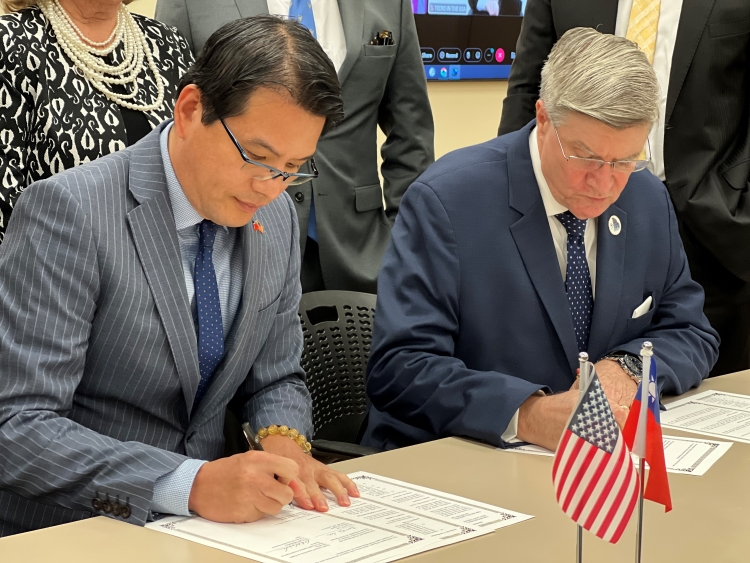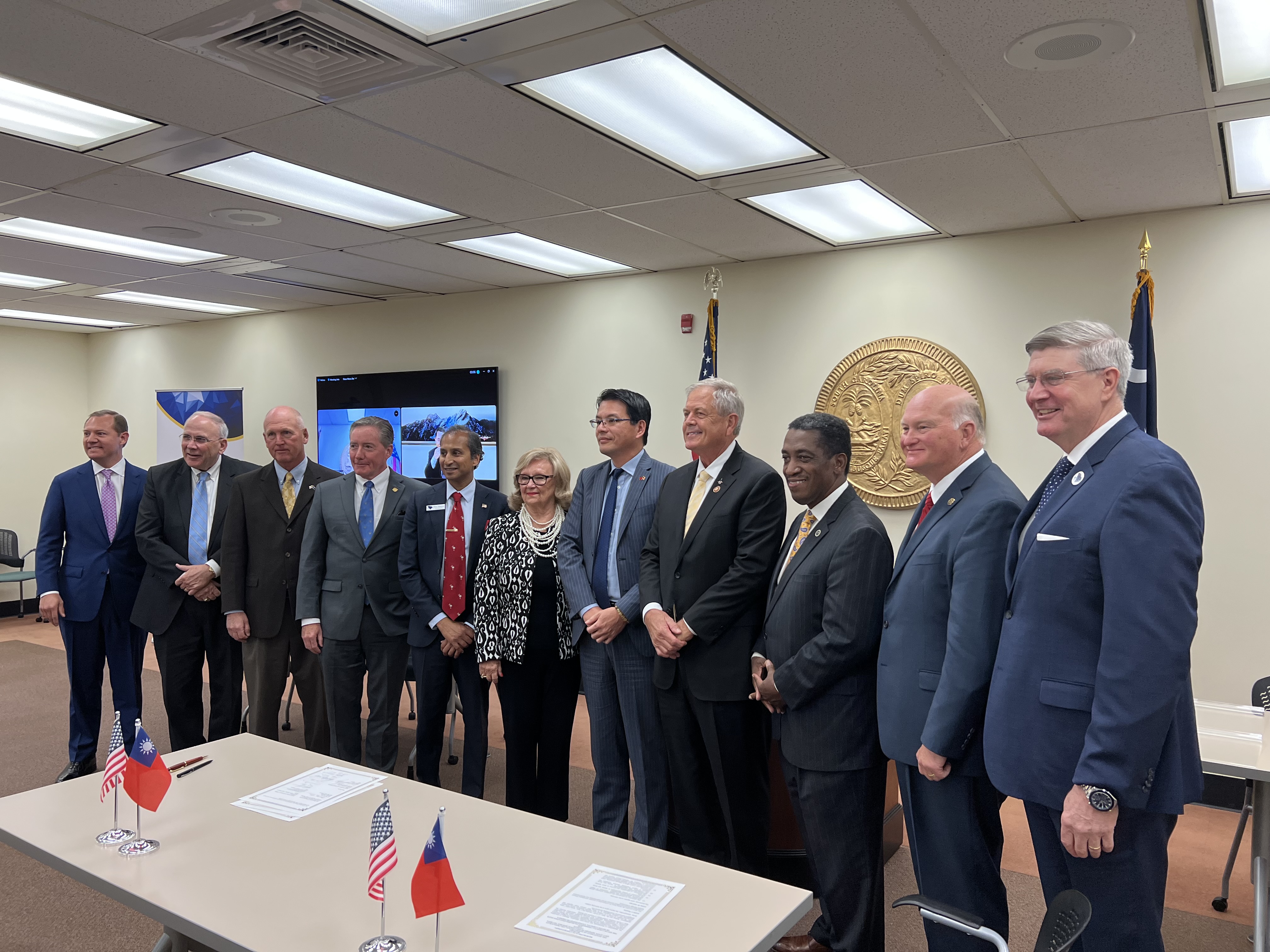
COLUMBIA -- The South Carolina Commission on Higher Education signed an historic memorandum of understanding today which will potentially expand higher education opportunities and deepen relations between South Carolina and the Republic of China (Taiwan).
The memorandum was signed between CHE President and Executive Director Rusty Monhollon, PhD, and Elliot Wang, Director-General of Taipei Economic and Cultural Office in Atlanta, Ministry of Foreign Affairs, Republic of China (Taiwan).
“This will provide a formal basis for collaboration and cooperation for educational initiatives, and increase opportunities for both American and Taiwanese students,” Monhollon said during the signing event. “I think there are opportunities to learn more about one another, to expand bilingualism in both South Carolina and Taiwan, and build a strengthened relationship.”
South Carolina is one of a handful of states to sign this type of agreement so far, and Wang noted that several other states in the region who signed MOUs earlier this year are already moving forward to develop initiatives. These include the first Taiwan center for Mandarin study, two Mandarin language projects for adult learners, and several university-to-university projects between American schools and counterparts in Taiwan.
Cooperation between Taiwan and South Carolina is nothing new – the two have maintained a sister state agreement since 1981. They also have strong trade ties: Taiwan is making significant purchases of military and civilian aircraft manufactured in South Carolina, and they are also the leading producer of semiconductors used in the global microchip supply chain.
During the past legislative session, both the South Carolina House of Representatives and the Senate passed resolutions in support of Taiwan, encouraging closer ties between it and South Carolina, including encouragement of “further business, educational, cultural and people-to-people exchanges” in Senate Resolution S. 700.
This educational agreement aligns with larger efforts for cooperation between the United States and Taiwan. An Education Initiative established in 2020 expanded opportunities for American students to learn Mandarin from Taiwanese teachers and increased opportunities for American teachers to help Taiwan reach its goal of becoming a bilingual society by 2030.
Wang said that the MOU “marks the diversity of our already very beneficial relations, especially on top of our close trade relations.”
“It’s not every day that we at the state level get to do work that strengthens international relations,” Monhollon said. “We thank our Taiwanese partners and the South Carolina General Assembly for this opportunity as we cultivate our relationship and create unique higher education experiences both from Taiwan and the United States.”

